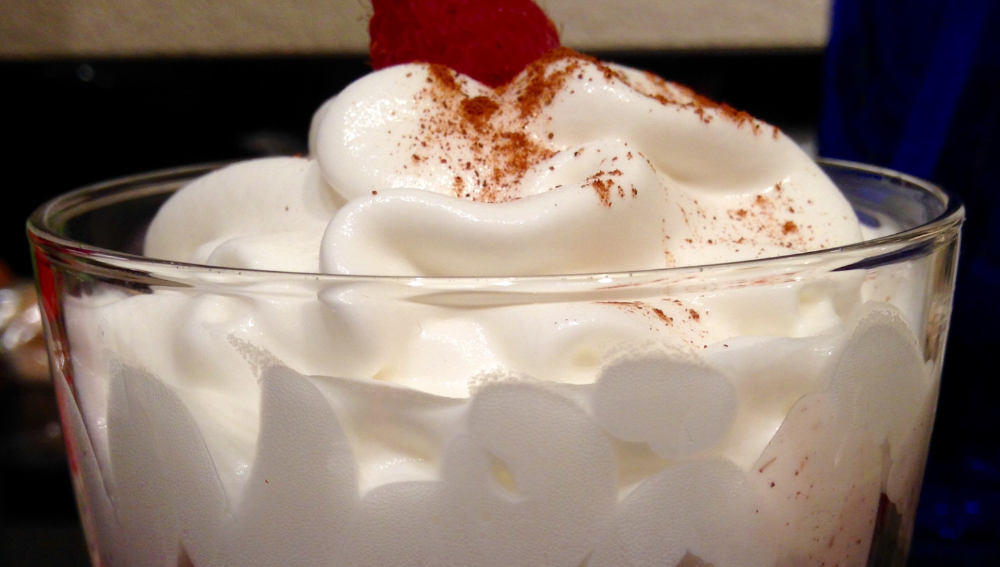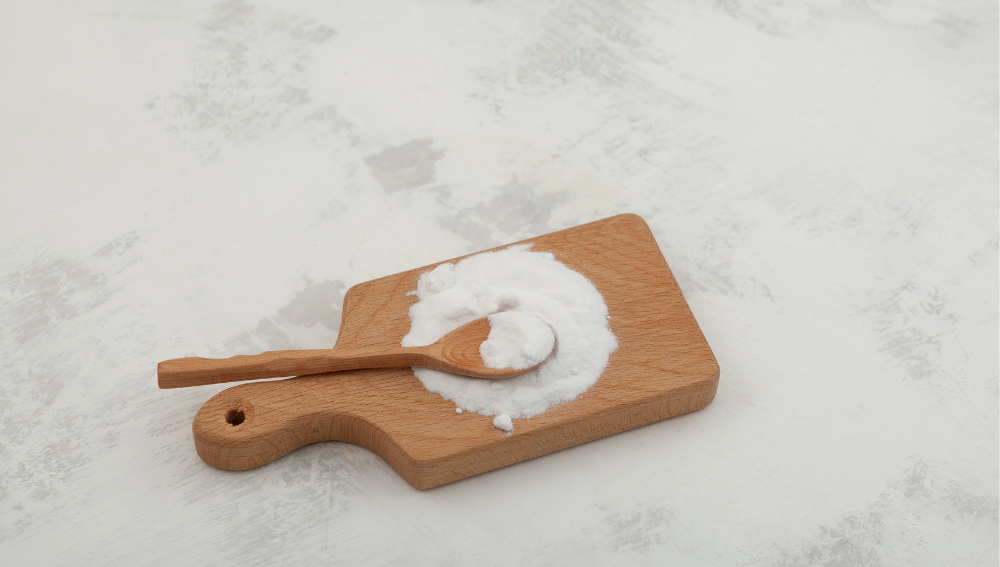As a fan of Chinese cuisine, I often come across recipes that call for black vinegar. Black vinegar is a staple ingredient in many Chinese dishes, and it adds a unique flavor to the dish.
However, it can be challenging to find in some areas, and it may not be suitable for everyone’s taste. In such cases, finding a suitable substitute for black vinegar is essential.
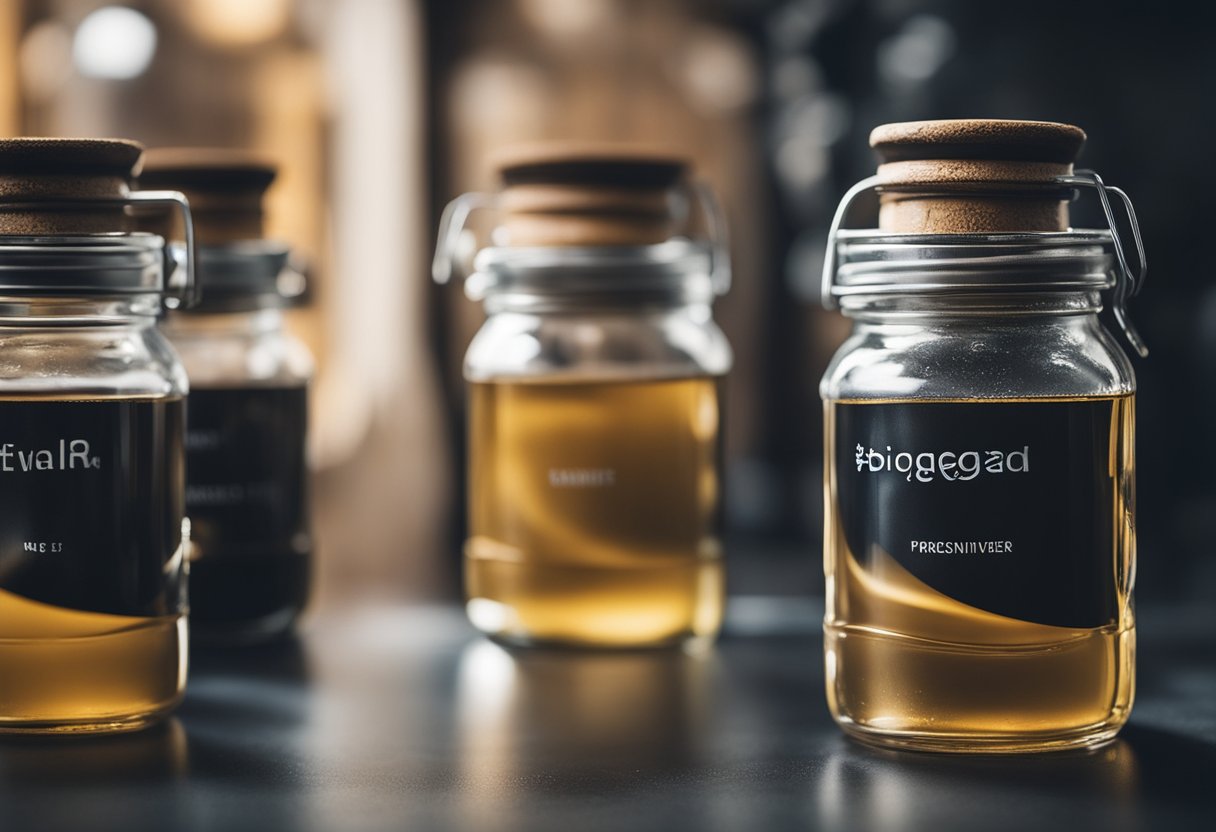
Understanding the flavor profile of black vinegar is crucial when finding a substitute. Black vinegar has a unique taste that is both sour and sweet, with a hint of smokiness. It is also less acidic than other vinegars like white vinegar or apple cider vinegar.
Therefore, finding a substitute that can mimic the flavor profile is crucial. Vinegars like balsamic vinegar, rice vinegar, and red wine vinegar are suitable substitutes for black vinegar, while lemon juice, lime juice, and tamarind paste are excellent non-vinegar substitutes.
Key Takeaways
- Black vinegar is a staple in many Chinese dishes, but it can be challenging to find and may not be suitable for everyone’s taste.
- Understanding the flavor profile of black vinegar is crucial when finding a substitute.
- Vinegars like balsamic vinegar, rice vinegar, and red wine vinegar are suitable substitutes for black vinegar, while lemon juice, lime juice, and tamarind paste are excellent non-vinegar substitutes.
Understanding Black Vinegar
Black vinegar, also known as Chinese black vinegar, is a type of vinegar that is made from various grains such as glutinous rice, millet, sorghum, and wheat.
The fermentation process involves first cooking and then fermenting the grains with vinegar culture for a few months to a few years.
The result is a dark-colored vinegar with a robust flavor that is often described as having an umami taste.
One of the key characteristics of black vinegar is its high acidity, which makes it a great ingredient for marinades, dressings, and sauces. However, it is important to use it in moderation as it can overpower other flavors in a dish.
Additionally, black vinegar has a slightly sweet taste that balances out its acidity, making it a versatile ingredient in many types of cuisine.
In Chinese cooking, black vinegar is a common ingredient in many dishes, such as sweet and sour pork, hot and sour soup, and dumpling dipping sauce. Its unique flavor and color add depth and complexity to these dishes.
The aging process of black vinegar is similar to that of wine, with some varieties being aged for up to 10 years. This aging process gives black vinegar a distinct flavor and aroma that cannot be replicated by other types of vinegar.
In summary, black vinegar is a versatile ingredient that can be used in a variety of dishes to add acidity, sweetness, and umami flavor. Its robust flavor and dark color make it a unique ingredient in many types of cuisine.
Why Substitute Black Vinegar
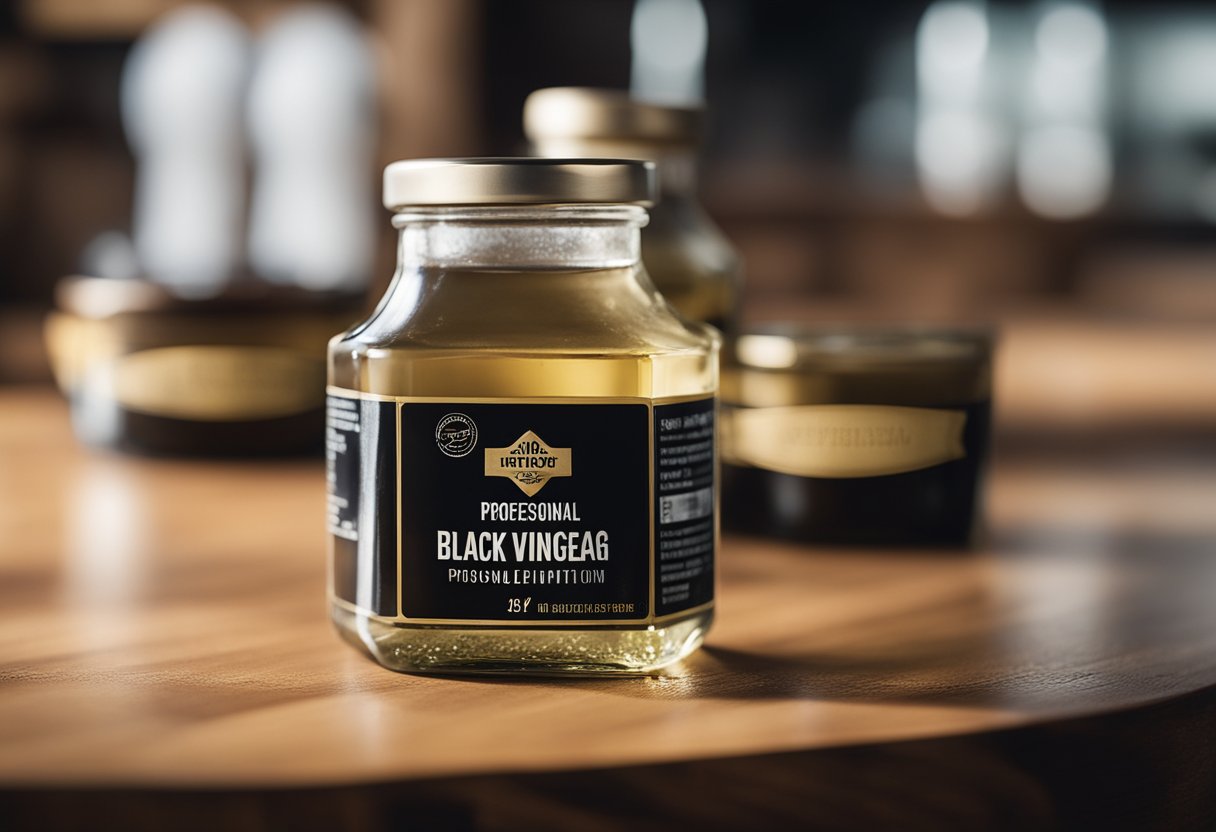
As a foodie, I love experimenting with different ingredients in my recipes. However, sometimes I find myself without a particular ingredient, like black vinegar. In those situations, I need to find a suitable substitute that will provide a similar taste and texture.
There are many reasons why someone might need to substitute black vinegar. Some people may have dietary restrictions that prevent them from consuming black vinegar, such as being vegan or having a gluten intolerance.
Others may simply not have access to black vinegar in their local grocery store.
Whatever the reason, finding a suitable substitute for black vinegar can be a great way to add a unique flavor to your dishes. There are many different substitutes available, each with its own unique flavor profile.
Malt vinegar is a popular substitute for black vinegar, especially when it comes to fish and chips. It has a similar tangy flavor and is made from malt, giving it a more complex taste.
Rice vinegar is another great substitute that is slightly sweeter than black vinegar and is commonly used in Asian cuisine.
For those who prefer a sweeter flavor, apple juice can be used as a substitute for black vinegar. It is acidic and sweet, making it a great choice for marinades, chutneys, and pickles.
Lime juice and honey can also be used as a substitute, but it is important to use the right quantities to achieve the desired taste.
In conclusion, there are many reasons why someone might need to substitute black vinegar. Whether it’s due to dietary restrictions or simply not having access to the ingredient, there are many substitutes available that can provide a similar taste and texture.
By experimenting with different substitutes, you can add a unique flavor to your dishes and impress your guests with your culinary skills.
Vinegar Substitutes
When it comes to substituting black vinegar, there are several options available that can provide a similar tangy and acidic flavor. Here are some of the best vinegar substitutes that you can try:
Balsamic Vinegar
Balsamic vinegar is one of the most popular substitutes for black vinegar. It has a similar acidity level and can provide a tangy flavor to your dishes. However, keep in mind that balsamic vinegar is sweeter than black vinegar, so you may need to use less of it.
Rice Vinegar
Rice vinegar is another great substitute for black vinegar. It has a mild and slightly sweet flavor that can complement your dishes well. It is also less acidic than black vinegar, so you may need to use more of it to achieve the desired flavor.
Malt Vinegar
Malt vinegar is a popular substitute for black vinegar in Western cuisine. It has a strong and distinct flavor that can add a unique taste to your dishes. However, keep in mind that malt vinegar is more acidic than black vinegar, so you may need to dilute it with water before using it.
Red Wine Vinegar
Red wine vinegar is a good substitute for black vinegar if you want a more robust and tangy flavor. It has a similar acidity level and can provide a rich and complex taste to your dishes.
Apple Cider Vinegar
Apple cider vinegar is a versatile substitute for black vinegar that can work well in many dishes. It has a tangy and slightly sweet flavor that can add depth to your recipes.
White Vinegar
White vinegar is a simple and affordable substitute for black vinegar. It has a high acidity level and can provide a sharp and tangy flavor to your dishes. However, keep in mind that it is more acidic than black vinegar, so you may need to use less of it.
Sherry Vinegar
Sherry vinegar is a good substitute for black vinegar if you want a milder and sweeter flavor. It has a subtle acidity and earthy undertones that can complement your dishes well.
Rice Wine Vinegar
Rice wine vinegar is a mild and slightly sweet substitute for black vinegar. It has a similar acidity level and can provide a delicate and tangy flavor to your dishes.
White Wine Vinegar
White wine vinegar is another mild substitute for black vinegar. It has a subtle and tangy flavor that can work well in many dishes. However, keep in mind that it is more acidic than black vinegar, so you may need to use less of it.
Overall, there are many vinegar substitutes that you can try if you don’t have black vinegar on hand. Each substitute has its own unique flavor and acidity level, so it’s important to choose the right one for your recipe.
Non-Vinegar Substitutes

If you’re looking for a non-vinegar substitute for black vinegar, there are a few options available. Here are some alternatives that you may want to consider:
- Worcestershire sauce: This is a popular condiment that is often used in marinades, dressings, and sauces. It has a complex flavor that is similar to black vinegar, and can be used as a substitute in many recipes.
- Soy sauce: Soy sauce is another popular condiment that can be used as a substitute for black vinegar. It has a salty, umami flavor that can add depth to your dishes.
- Molasses: Molasses is a thick, syrupy sweetener that has a rich, complex flavor. It can be used as a substitute for black vinegar in recipes that require a sweet and sour flavor.
- Tamarind paste: Tamarind paste is a popular ingredient in Asian cuisine that has a sweet and sour flavor. It can be used as a substitute for black vinegar in recipes that require a tangy flavor.
- Lime juice and Lemon juice: Both lime juice and lemon juice have a tart, acidic flavor that can be used as a substitute for black vinegar in recipes that require a sour flavor.
- Grape juice: Grape juice is a sweet fruit juice that can be used as a substitute for black vinegar in recipes that require a sweet and sour flavor.
- Honey and Sugar: Both honey and sugar can be used as a substitute for black vinegar in recipes that require a sweet and sour flavor.
- Date vinegar: Date vinegar is a type of vinegar that is made from dates. It has a sweet and sour flavor that is similar to black vinegar, and can be used as a substitute in many recipes.
When substituting these ingredients for black vinegar, it’s important to keep in mind that the flavor may be slightly different. You may need to adjust the amounts of other ingredients in your recipe to compensate for the difference in flavor.
Considerations in Cooking

When substituting black vinegar in a recipe, it is important to consider the flavor profile of the dish. Black vinegar has a unique taste that is slightly sweet, sour, and smoky.
Therefore, it is best to choose a substitute that can mimic these flavors as closely as possible.
For stir-fries, salads, dressings, marinades, soups, noodle dishes, sweet and sour dishes, pickling, stews, grilled vegetables, fish and chips, meat, grains, sauces, condiments, glazes, and desserts, balsamic vinegar is a good substitute for black vinegar.
However, it is sweeter than black vinegar, so it is best to use less of it and dilute it with water if necessary.
If you want a less sweet substitute, rice vinegar, red wine vinegar, or malt vinegar can be used. Rice vinegar has a mild taste and is commonly used in Asian cuisine.
Red wine vinegar has a fruity flavor and is often used in Mediterranean dishes. Malt vinegar has a strong taste and is commonly used in British cuisine.
For a fruity flavor, sherry vinegar, apple cider vinegar, or date vinegar can be used. Sherry vinegar has a nutty taste and is commonly used in Spanish cuisine.
Apple cider vinegar has a tart taste and is often used in American dishes. Date vinegar has a sweet taste and is commonly used in Middle Eastern cuisine.
In summary, when substituting black vinegar in a recipe, it is important to consider the flavor profile of the dish and choose a substitute that can mimic these flavors as closely as possible.
Balsamic vinegar is a good all-purpose substitute, but rice vinegar, red wine vinegar, malt vinegar, sherry vinegar, apple cider vinegar, or date vinegar can also be used depending on the desired flavor.
Flavor Profile Comparison

Black vinegar is known for its unique flavor profile that includes subtle sweetness, woody notes, and a hint of smokiness. It has a dark color that adds depth and richness to dishes.
However, if you don’t have black vinegar on hand or can’t find it in your local store, there are several substitutes that can mimic its flavor profile to varying degrees.
Balsamic vinegar is a popular substitute for black vinegar. It has a dark color and a tart, acidic flavor that can add depth and complexity to dishes.
However, it lacks the subtle sweetness and smokiness of black vinegar, so it may not be the best substitute if you’re looking to replicate the exact flavor.
Rice vinegar is another good substitute for black vinegar. It has a similar color and a mild, slightly sweet flavor that can work well in many recipes.
However, it lacks the woody notes and smokiness of black vinegar, so it may not be the best choice for dishes that require those flavors.
Sherry vinegar is a sweet vinegar that can be a good substitute for black vinegar if you’re looking to replicate its sweet flavor profile.
However, it has a much lighter color than black vinegar, so it may not be the best choice if you’re looking to replicate the dark color of black vinegar.
Balsamic glaze is another option if you’re looking for a substitute that can add depth and sweetness to dishes. It has a thick consistency and a sweet, tangy flavor that can work well in many recipes.
However, it lacks the smokiness and woody notes of black vinegar, so it may not be the best choice if you’re looking to replicate the exact flavor.
Overall, there are several black vinegar substitutes that can work well in a variety of dishes. However, it’s important to keep in mind that each substitute has its own unique flavor profile, so it may not be possible to replicate the exact flavor of black vinegar.
Tips for Substituting Black Vinegar
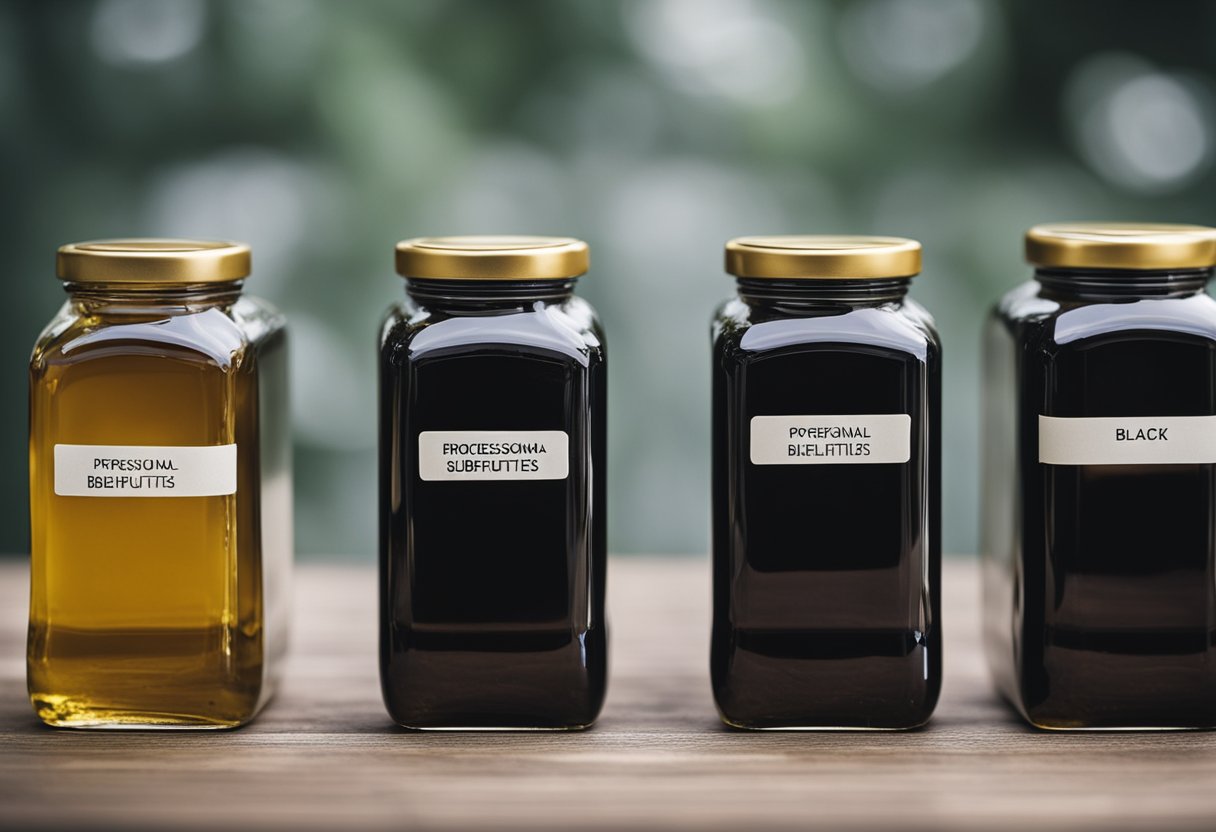
When substituting black vinegar, it is important to consider the consistency and taste of the substitute.
Some of the best substitutes for black vinegar include balsamic vinegar, rice vinegar, malt vinegar, red wine vinegar, apple cider vinegar, and lemon juice with honey.
Balsamic vinegar is a great substitute for black vinegar due to its similar consistency and sweet taste. Rice vinegar is also a good substitute, but it has a milder taste and is less sweet than black vinegar.
Malt vinegar is another option, but it has a stronger taste and is less sweet than black vinegar. Red wine vinegar is a good substitute for black vinegar, but it has a stronger taste and is less sweet.
Apple cider vinegar is a good substitute, but it has a more sour taste than black vinegar. Lemon juice with honey is a good substitute for black vinegar, but it has a different taste profile.
When substituting black vinegar, it is important to consider the acetic acid and ethanol content of the substitute.
Black vinegar is made by fermenting rice, wheat, or barley with acetic acid bacteria and yeast. The acetic acid content of black vinegar is usually around 5-6%, and the ethanol content is around 1-2%.
Sweetened black vinegar is a popular type of black vinegar that is commonly used in Chinese cooking. It is made by adding sugar to regular black vinegar.
Regular black vinegar, also known as Chinkiang vinegar, is a dark, aged vinegar that is commonly used in Northern China. It has a rich, smoky flavor and is made from rice, wheat, barley, and sometimes soybeans.
Chinkiang vinegar is a type of black vinegar that is made in the city of Chinkiang in Jiangsu province, China. It is made from rice and wheat and has a milder taste than regular black vinegar. It is often used in marinades, sauces, and dressings.
Traditional balsamic vinegar is a type of vinegar that is made from grape must that has been aged for at least 12 years. It has a sweet, complex flavor and is often used in Italian cuisine.
Koji is a type of fungus that is used to ferment soybeans, rice, and barley to make various types of vinegar and other fermented foods.
Onions can also be used to make a substitute for black vinegar. To make onion vinegar, simply chop up some onions and place them in a jar with vinegar. Let the mixture sit for a few days, then strain out the onions and use the vinegar as a substitute for black vinegar.
When substituting black vinegar in a recipe, it is important to consider the taste and consistency of the substitute. It may take some trial and error to find the perfect substitute for your recipe, but with a little experimentation, you can find a suitable replacement.
Frequently Asked Questions

Where can I find Chinese black vinegar?
Chinese black vinegar can be found in most Asian grocery stores or online. Some popular brands include Gold Plum Chinkiang Vinegar and Koon Chun Black Vinegar.
How can I make a substitute for black vinegar?
One easy substitute for black vinegar is balsamic vinegar. Other options include rice vinegar, apple cider vinegar, or red wine vinegar. To mimic the flavor of black vinegar, add a pinch of sugar to the substitute vinegar.
What are the differences between black vinegar and white vinegar?
Black vinegar is made from rice, wheat, barley, or sorghum and has a dark color and complex flavor. White vinegar, on the other hand, is made from grain alcohol and has a sharp, acidic taste. They are not interchangeable in recipes.
What are some common uses for black vinegar?
Black vinegar is commonly used in Chinese cuisine as a dipping sauce for dumplings or as a marinade for meats. It can also be used in salad dressings, stir-fries, and sauces.
Are there any other vinegars that can be used as a substitute for black vinegar?
Balsamic vinegar, rice vinegar, apple cider vinegar, and red wine vinegar can all be used as substitutes for black vinegar. However, the flavor will not be exactly the same.
Is black vinegar similar to Worcestershire sauce in taste and usage?
Black vinegar and Worcestershire sauce have some similarities in flavor, but they are not interchangeable. Worcestershire sauce has a more complex flavor profile and is often used in Western cuisine, while black vinegar is primarily used in Chinese cuisine.



